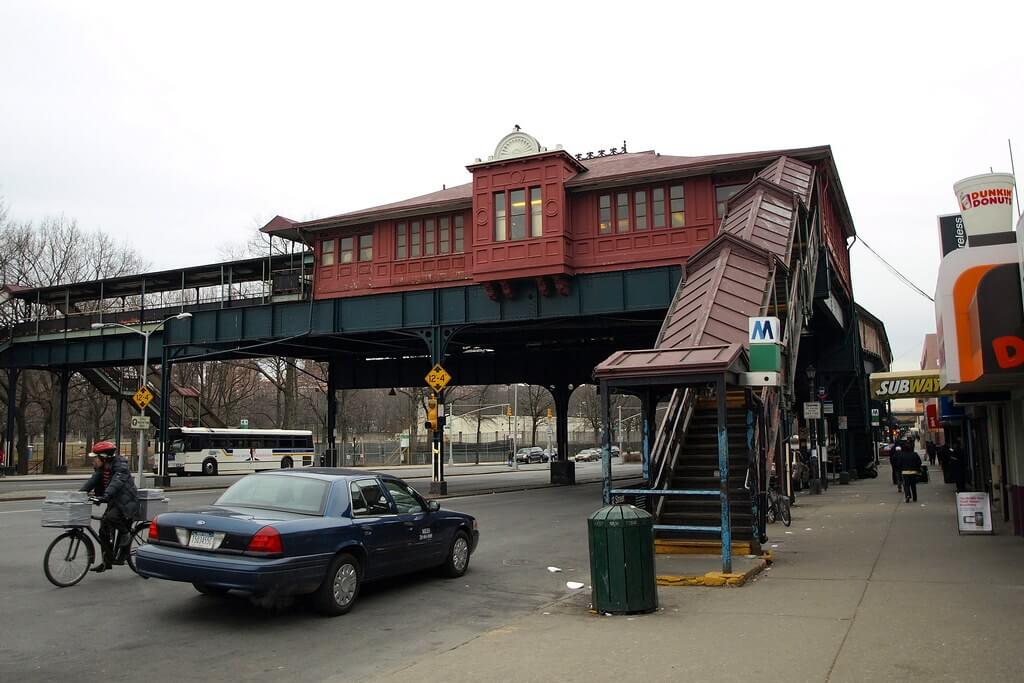
Sign up for our PoliticsNY newsletter for the latest coverage and to stay informed about the 2021 elections in your district and across NYC
If approved by the New York City Council on Friday, six more Bronx subway stations and transit hubs could be ADA-accessible by 2024 as part of an MTA zoning proposal to make NYC transit more accessible.
“We’re playing catchup when it comes to modernizing our stations to accessibility standards, especially in places like the Bronx,” said Quemel Arroyo, MTA chief accessibility officer told the Bronx Times. “So we’re pushing city officials to make (MTA Elevate Transit: Zoning for Accessibility) into law so that Bronx riders can find the ease of accessibility that other stations in Manhattan have been seeing with the rezoning.”
The MTA Elevate Transit: Zoning for Accessibility proposal, a partnership with the Department of City Planning and the Mayor’s Office for People with Disabilities, seeks to allow residential developers near subways, Staten Island Railway and commuter rail stops within the city to build up to 20% bigger — with the caveat that they include accessibility upgrades like a new set of stairs or elevators.
“We want these same benefits that are in Midtown to come to the Bronx as well so that our riders can benefits from elevators and new access points into their local station,” Arroyo said. “So when a developer comes into neighborhoods and is within 50 feet of an MTA facility, we want them to offer an easement or accessibility to those stations so that their tenants and residents can benefit from those enhancements.”
Currently, 131 out of 472 stations are ADA-accessible citywide, or less than 28%, according to MTA’s most recent figures. The Bronx has 70 MTA stations, but only 15, roughly 21%, have full-ADA accessibility, which is the lowest in New York City.
Under the plan, Van Cortlandt Park-242 Street, Tremont Avenue, Parkchester, East 149 Street, Brook Avenue and Mosholu Parkway stations are set to become fully ADA-accessible stations, according to the MTA’s $54.8 billion 2020-2024 Capital Plan.
The city’s ultimate plan is to get all subway stations under some level of ADA accessibility by 2030. Even if the MTA modernizes 70 stations by 2024, another 287 stations will still be in need of wheelchair accessibility.
A zoning bonus for developers already exists in some neighborhoods, mostly in Midtown and Lower Manhattan, along with downtown Brooklyn. However, MTA officials hope to expand that incentive to other areas such as Jamaica and Long Island City in Queens, and the southwest Bronx, which they hope will speed up their goal of making all of their stations more accessible.
Residents like Brenda Najareen, who requires the assistance of a walker for debilitating diabetes, said she is one of many residents still looking for upgrades to nearby stations like Castle Hill, which is currently impossible for her to utilize due to the station’s two large level staircases and lack of elevators into its above-ground platform.
“How am I supposed to ride the train when I can’t get to the platform? This wheelchair can’t levitate,” Najareen said. “So for many of us, we don’t have our pick of the litter when it comes to which subway trains we can ride and what stops we can afford to just ‘pop by.'”
Calls for increasing accessibility in MTA subways have been a longtime battle for advocates and handicapped commuters, and those battles had made their way through legal arenas in recent years.
In 2019, a lawsuit filed by national nonprofit Disability Rights Advocates (DRA) on behalf of a coalition of local groups, sought a court order requiring the MTA to install elevators or other accessibility alternatives in all station renovations, along with a declaration that the MTA’s practice of “ignoring accessibility during renovations” is unlawful, according to the suit.
“The MTA has consistently engaged in major renovation projects to improve station usability for non-disabled riders — spending millions of dollars and closing stations for months to conduct the work — while systematically failing to install elevators or other stair-free routes,” according to the lawsuit, which was filed in state court and does not seek monetary damages.
The suit mirrored a similar lawsuit filed in March 2019, that charged the MTA with violating the Americans with Disabilities Act (ADA) when it overhauled the Middletown Road station in the Bronx without installing elevators.
"six" - Google News
September 22, 2021 at 08:15PM
https://ift.tt/3u60jwP
Six Bronx subway stations could be ADA-accessible under MTA proposal – Bronx Times - Bronx Times
"six" - Google News
https://ift.tt/3dcBbL9
https://ift.tt/2Wis8la

No comments:
Post a Comment